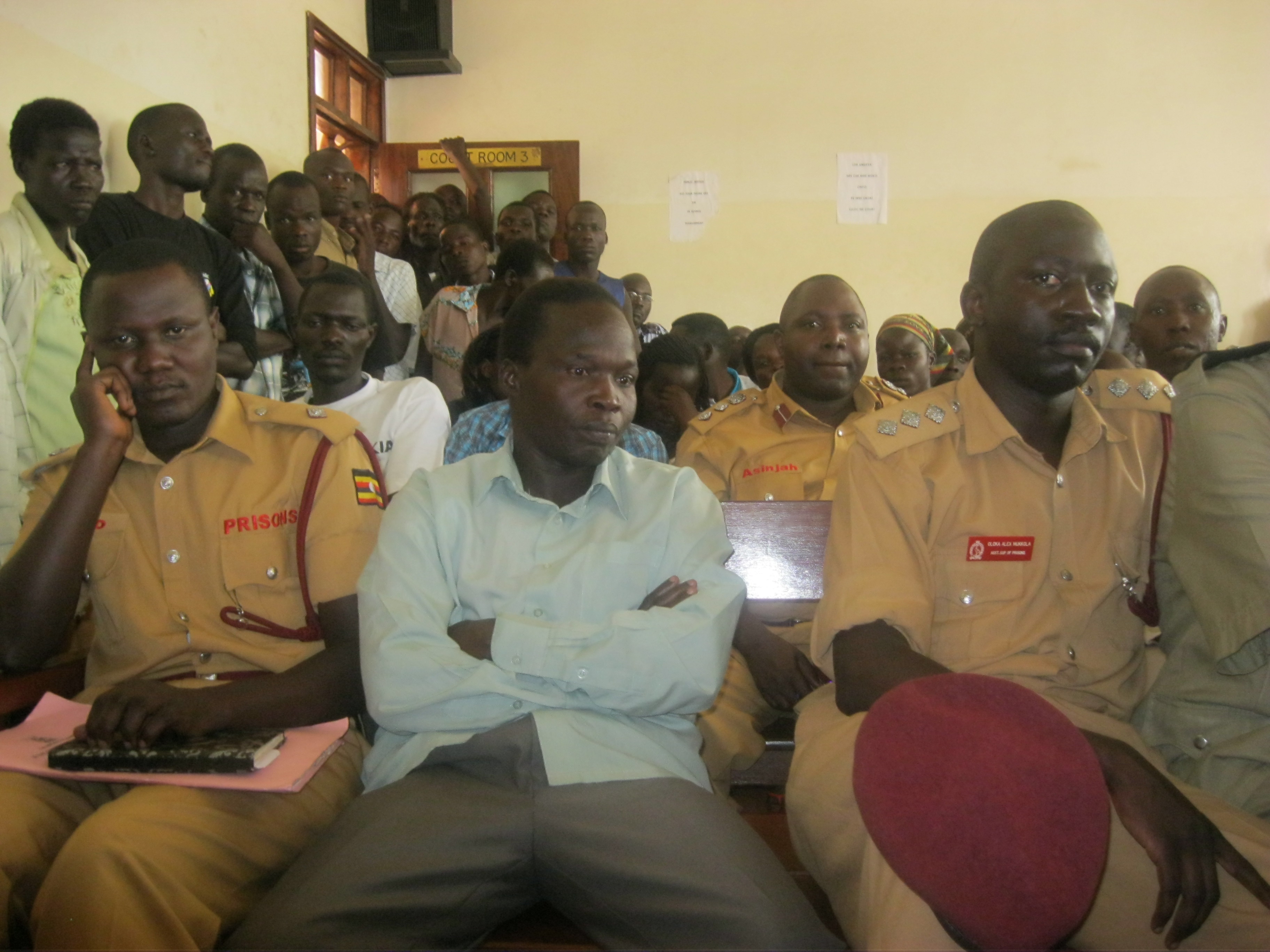“You could see people in the court room laughing and even Dominic Ongwen would fall behind his hands,” said Justice and Reconciliation Project Head of Office, Mr. Okwir Isaac Odiya. “[Ongwen] was genuinely happy with the testimony given.” As the defense team continued to mount its case, Mr. Odiya journeyed to the International Criminal Court in The Hague to monitor the trial on behalf of JRP.
The image of the accused in a fit of giggles seems almost incongruous with the case itself. Abducted by the Lord’s Resistance Army as a young boy, Ongwen eventually commanded the Sinia brigade. He is accused of 70 counts of war crimes and crimes against humanity, including abducting children to use as soldiers and sex slaves.
The defense argument is thoroughly unique. Lawyers, led by Counsel Krispus Ayena, assert that Joseph Kony had spiritual power over his army. Thus, Ongwen was not only indoctrinated. He was possessed by spirits. Ayena brought forward a number of witnesses, including a local chief and traditional Ajwaka or Witch Doctor. These witnesses explained the depth of the spiritual realm and, through it, the control Kony exerted over his followers. In other words, Ongwen’s actions were not his own.
According to Mr. Odiya, There was little cross examination, and the judge asked questions only to clarify. Similarly, observers leaned in with rapt attention, at first listening only to understand. Ayena’s argument is certainly surprising and even tricky, but not without the possibility of success. “If the court allows there is a spirit world, the case may be dismissed,” Mr. Odiya said.
The defense team also strove to prove that the Uganda People’s Defense Forces were culpable in the insurgency. Blame has thus far fallen primarily on the rebels, and history has ignored government crimes. Ayena asserts that exposing these atrocities now may pave the way for future prosecution.
Meanwhile, Ongwen has been well cared for in The Hague. His condition stands in sharp contrast to the experiences of fellow rebel Thomas Kwoyelo, who has spent the past decade in the overcrowded Luzira prison. Ongwen is given a monthly allowance to buy food and clothes. This allows him a level of financial security that many Ugandans lack, particularly in conflict affected areas. He has also become an excellent cook, often preparing meals for his defense team, and learned to read and write in English and play the piano.
Gaps in knowledge about the court are striking. While many residents of the Acholi Sub-Region have followed the case through community screenings, run by the ICC, few understand its intricacies or the manifold arguments put forward by the defense. Some even fear for Ongwen’s life. During a JRP focus group last month, a resident of Pajule said, “Killing Ongwen will not raise up those who died.”
The clear next step is to bring information about the case and arguments made back to the communities. Specifically, Mr. Odiya hopes to make the court process and the rights of the accused clear going forward.
In addition to attending trial sessions, Mr. Odiya participated in a number of meetings with court officials. He spoke at length the victims’ council and the prosecution team as well as the Registrar of the court and Director of External Division, among other official and identified multiple programmatic areas to complement the court process.
Whether Ongwen is proved innocent or guilty, the society needs repair. Reconciliation is crucial and war-time wounds must be healed. Mr. Odiya will focus on leading JRP to advocate and contribute in fostering ‘beyond court room’ initiatives.

